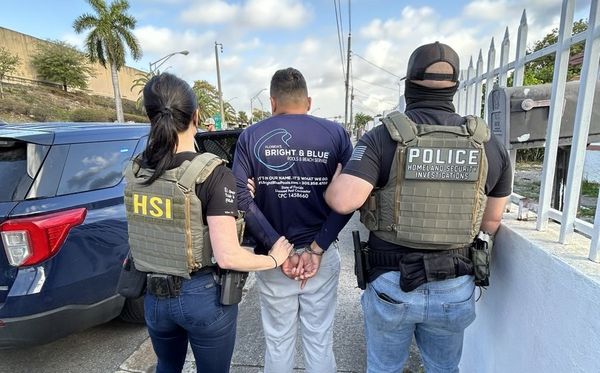
Here’s an idea for a Channel 4 property show (yeah, like they don’t have enough of them already): give some lucky families the chance to buy a house, for a quid. Brilliant, no? Yes, but these houses are in a bad state, proper ropey, no roofs, trees growing inside, unintentional indoor water features etc. Our new homeowners have to do them up, using their own money, around about £40,000 of it, minimum. Still, 40 grand for a house isn’t bad, is it?
It’s kind of Extreme House Makeover, and the money adds pressure and tension. It needs more, though. So add time pressure, too; give them a year to do the work, otherwise they lose the house, and any money they have spent on it. Yes, I like it.
More still. First, randomly select some of them and tie them up with red tape. Make it impossible for them to start work on these houses because of unforeseen legal restrictions, meaning that our families are trapped, unable to move forward, or in.
What about characters? It needs more of them. So throw in a lugubrious, hapless council man called Tony, whose job is to deliver, first, hope, and then to dash that hope with unanticipated problems. Tony the Destroyer of Dreams.
And let’s have some proper baddies: burglars, robbers and looters, who, having already nicked all the lead off the roofs, come back at night to take anything our poor families have put into what were their dream houses but are quickly turning into nightmares. Perfect, the fear factor. Add a bit of gunfire? Why not? Make them too afraid to move into their new houses because no one else has and they don’t want to live in a lawless ghost town, so it becomes a game of dare as well …
Too much? No, because it’s not actually a makeover game show proposal, it’s a real thing happening in the Wavertree area of Liverpool – this is a documentary. After Sam and Rachel moved into their house in the first episode, with the mayor there and everything, who is going to be next? Frontrunners are Mo and Eman, who are nearly there, but then it’s them who get burgled. All the appliances, cooker, fridge freezer, everything; £3,000-worth and, because the house isn’t officially theirs yet, they couldn’t have contents insurance.
Khadra and Osman, also nearly ready, hear about the burglary and put their own move on hold. Victoria does move into her house, but nervously. It doesn’t help that her builders are worried for her, and the local policeman says he wouldn’t have taken up the offer.
And poor Ibby can’t get started because her house is one with a restriction. She is in no doubt that Liverpool city council is to blame (it’s hard to disagree; the council seems to have a lot to answer for, even if the scheme itself is a good idea). And when she bumps into Tony, luckily on camera, she gives him a piece of her mind. “There is a plan to get to that finish line, as it were,” he says, miserably.
The show (not the scheme) works because it has all those makeover game show elements – tantrums and tears, setbacks and pressures – that make good television. But it’s real, and so you actually care. The issues are also very real ones: the chronic shortage of affordable housing, the scandal of unoccupied houses. So you really want the scheme to work, too.
Murdered for Love? Samia Shahid (BBC2) was so desperately sad and depressing. You’ll have known the story – or if not Samia’s, then so many similar ones. Samia, 24, from Bradford, agrees to an arranged marriage with her first cousin in Pakistan, in order to please her parents. It’s a disaster, she gets a divorce under sharia law and marries the man she loves. Then, while back in Pakistan visiting her family, she suddenly dies. Perhaps she fell down stairs, suffered a heart attack, or it was suicide, say the family. Murder – “honour killing” – say the authorities, eventually, after some prodding by Samia’s MP, Naz Shah.
Here, Samia’s friends speak (through actors for fear of reprisals), as does her (second) husband, Mukhtar, about their friend and the love that they lost. Not only another tragic story of cultural and generational difference and disconnect, but the story of a young Bradford woman who loved cars, and Snapchat, and Mukhtar, and who will now never have the children she longed for.







